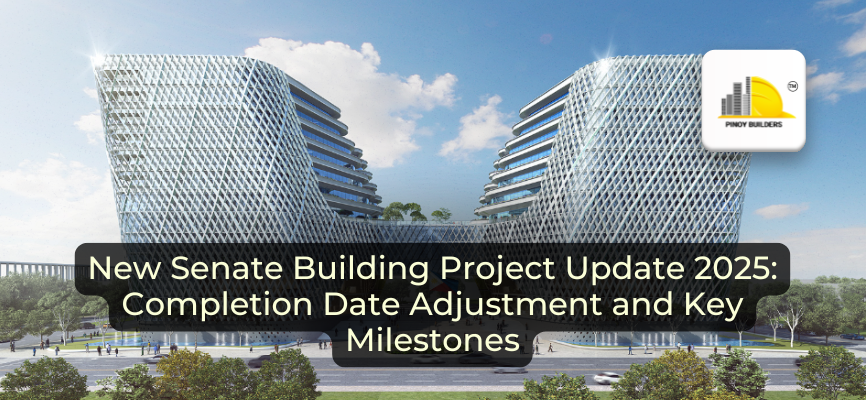Think about tackling a construction project without a solid contract—chaos, disputes over costs, and delays could easily throw everything off track. A well-crafted contract is like your project’s roadmap, helping you navigate from start to finish. It outlines expectations, payment terms, and the handling of disputes and warranties, ensuring that all parties understand their roles and responsibilities.
Construction contracts are crucial for any successful project. They provide a clear, legal framework that covers everything from work scope and deadlines to costs and responsibilities. In the Philippines, where the construction scene is booming, understanding these contracts is key to keeping things running smoothly and protecting your interests.
In this article, we’ll break down the essentials of construction contracts, covering their key components and the different types used in the Philippines. Whether you’re a homeowner starting a renovation or a contractor handling big projects, knowing your contracts inside out will help you make smart decisions, avoid risks, and ensure your project finishes on a high note.

Essential Components of Construction Contracts in the Philippines
A construction contract is basically a game plan between you and the contractor that lays out everything for a project. It’s key to making sure everyone’s on the same page. Here’s what you need to know:
- Scope of Work: This spells out exactly what’s being done, including tasks, deliverables, and specs. It’s your blueprint for what to expect.
- Time Frame: Sets the start and end dates, plus key milestones. It helps you keep track of progress and deadlines.
- Payment Terms: Break down costs, payment schedule, and methods. It also includes penalties for late payments in order to avoid money disputes.
- Responsibilities and Obligations: Lists who’s responsible for what, from safety rules to quality standards. Everyone is aware of their responsibilities and expectations.
- Change Orders: Outlines how to handle any changes to the project. This ensures clarity when necessary adjustments arise.
- Dispute Resolution: Describes how conflicts will be resolved, like through mediation or arbitration, so issues can be sorted out smoothly.
- Termination Clauses: Details the conditions for ending the contract and what happens if there’s a breach. It protects both sides if things go awry.
This contract is your project’s roadmap—make sure it covers all the bases!
Common Types of Construction Contracts in the Philippines
Choosing the right construction contract can make a huge difference in your project’s success. Here’s a casual breakdown of the different types, so you can pick what suits your needs best:
Fixed-Price (Lump Sum) Contracts
Imagine this as the “one-price-fits-all” deal. You agree on a set price for the whole project right from the start. It’s excellent for budgeting because you know exactly what you’ll pay, but it can get tricky if changes come up or if costs end up higher than expected. If the project scope expands or surprise expenses pop up, you might end up in a dispute or have to renegotiate.
Cost-Plus Contracts
This is more like paying for what you use. You cover the actual cost of the project, plus an additional fee or percentage for the contractor. It’s pretty flexible and transparent, meaning you see exactly where your money is going. However, it can sometimes lead to surprises with the final bill since there’s no cap on costs.
Unit Price Contracts
Perfect for projects where you’re not quite sure about the quantities involved. You pay based on the number of units or square meters completed. This means you can adjust the costs as the project progresses and get a clearer idea of the total expense as you go along.
Design-Build Contracts
Here, one party handles both the design and the construction. This can simplify communication and streamline the process because there’s just one point of contact. However, you might give up a bit of control over specific design details since the contractor manages everything.
Guaranteed Maximum Price (GMP) Contracts
Think of this as a safety net for your budget. You agree on a maximum price, and if the project ends up costing less, you get to pocket the difference. This setup offers a satisfactory balance between cost certainty and flexibility, but if the costs go over the agreed amount, you might have to cover the extra.
Time and Materials Contracts
This is like a pay-as-you-go plan. You cover the cost of labor and materials, as well as a markup for overhead and profit. It’s extremely adaptable and works well when project details are still in the air. Keep a close watch on the progress, as it can occasionally result in increased expenses if not handled with caution.
Each type of contract has its own perks and pitfalls. The best one for your project depends on your needs, risk tolerance, and detailed involvement.

Legal Framework Governing Construction Contracts in the Philippines
Construction contracts in the Philippines are governed by the Philippine Civil Code, which took effect in 1950 through Republic Act No. 386. The Philippine Civil Code outlines the obligations and liabilities of involved parties in the contract, including those that outline the legalities of a construction project.
The Construction Industry Authority of the Philippines (CIAP) plays a significant role in standardizing practices, setting regulations, and resolving disputes. Compliance with the National Building Code and adherence to procurement laws for public projects are also crucial. Moreover, the Philippine Contractors Accreditation Board (PCAB) licenses all contractors (including subcontractors and specialty contractors) before they can engage in any business, ensuring that each contractor meets the national standards.
Importance of Comprehensive Contracts
The local construction industry is booming, which means that there is a growing need for well-drafted construction contracts that protect all parties involved in the project. Understanding the essential components, types, and legal framework of construction contracts is vital for successful project execution in the Philippines. Properly drafted contracts minimize disputes and ensure that all parties are protected and clear on their responsibilities.
For anyone involved in construction, consulting with legal experts and adhering to standardized practices is crucial in achieving project success and compliance. With fair, comprehensive contracts, you can set your projects up for success and avoid costly disputes.
References
Construction Industry Authority of the Philippines. (n.d.). Contractor’s Licensing and Registration. Construction Industry Authority of the Philippines. Retrieved August 28, 2024, from http://construction.gov.ph/program_and_services/contractors-licensing-and-registration/
DBM. (n.d.). Construction Industry Authority of the Philippines. DBM. Retrieved August 28, 2024, from https://www.dbm.gov.ph/wp-content/uploads/OPCCB/opif2009/dti-ciap.pdf
DPWH. (n.d.). NATIONAL BUILDING CODE OF THE PHILIPPINES. DPWH. Retrieved August 28, 2024, from https://www.dpwh.gov.ph/DPWH/files/nbc/PD.pdf
O’Donnell, R. (2024, June 11). The 5 Key Types of Construction Contracts. Procore. Retrieved August 28, 2024, from https://www.procore.com/library/construction-contract-types
Official Gazette. (n.d.). Republic Act No. 386. Official Gazette. https://www.officialgazette.gov.ph/1949/06/18/republic-act-no-386/
Trans-Lex. (n.d.). Philippines Republic Act 386 (Civil Code). Trans-Lex. Retrieved August 28, 2024, from https://www.trans-lex.org/602450/_/philippines-republic-act-386-/








